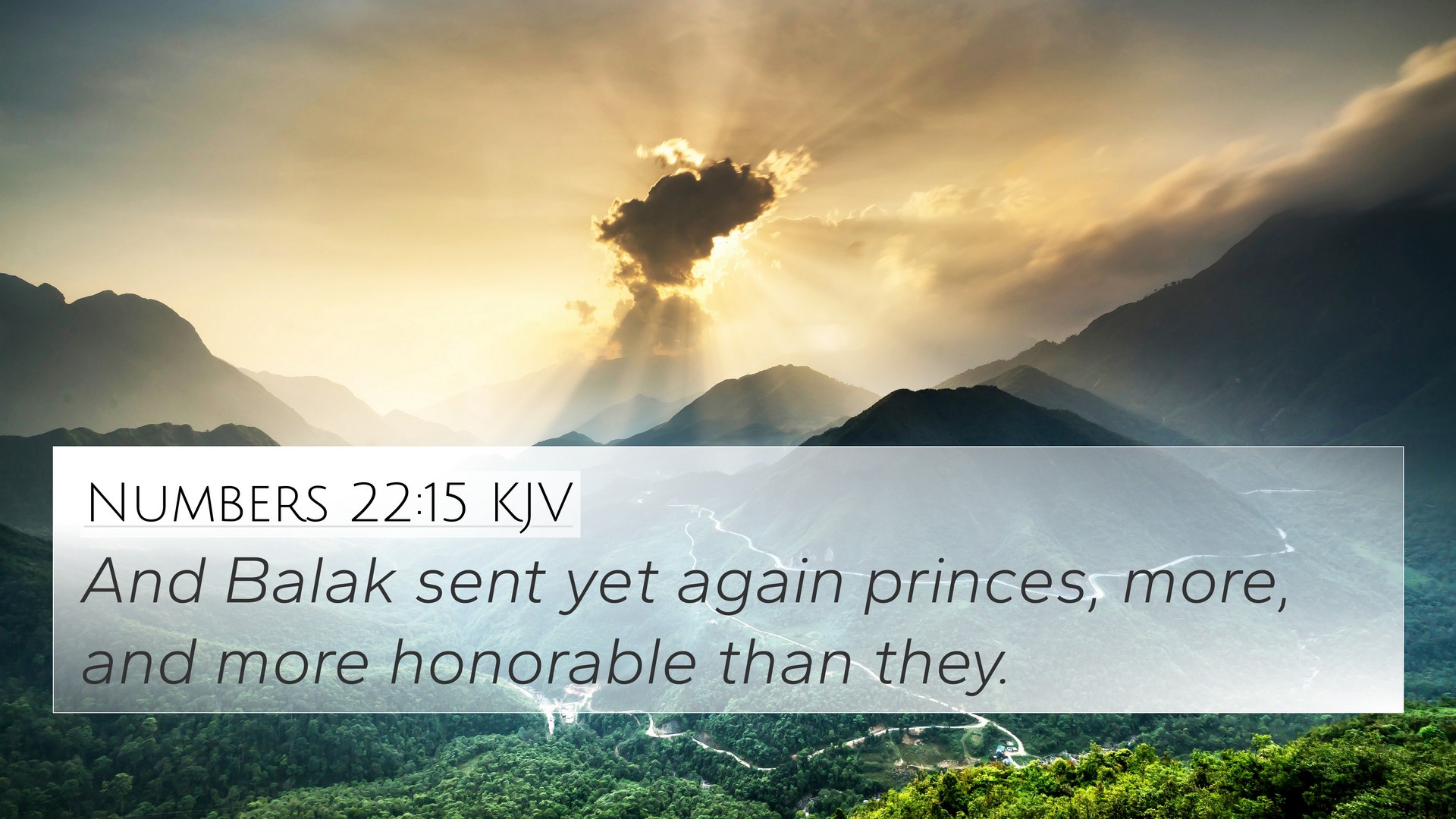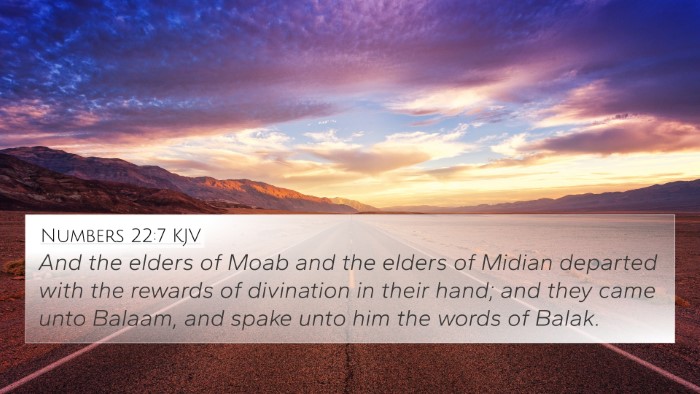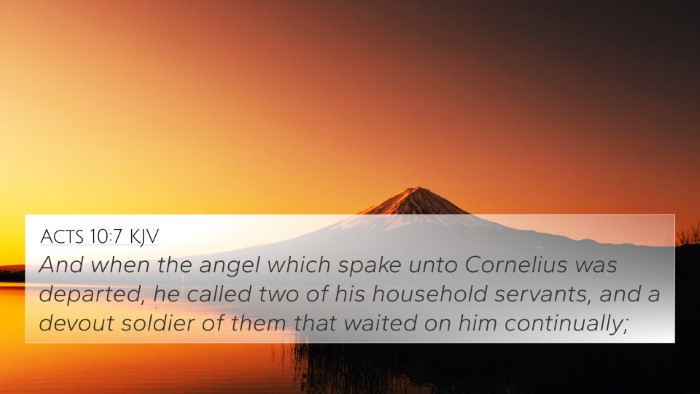Understanding Numbers 22:15
Numbers 22:15 recounts an intriguing episode in the life of the Israelites as they journeyed to the Promised Land. The verse states,
"And Balak sent yet again princes, more, and nobler than they." This moment in scripture involves the confrontation between
Balak and Balaam, a prophet who ultimately would not curse Israel. To properly interpret this verse and understand its significance,
we shall explore insights provided by various public domain commentaries.
Context and Background
The backdrop of this event is crucial in understanding Numbers 22:15. The Israelites, having been delivered from Egypt, are
moving closer to the land God promised them. Their approach is causing concern among neighboring nations, specifically Moab,
ruled by Balak. Balak’s fear stems from the Israelite's victories and sheer numbers.
Commentary Summaries
-
Matthew Henry:
Henry comments on Balak's desperation as he attempts to entice Balaam with “nobler” princes, suggesting an increasing
urgency to halt the Israelites. This reflects the lengths to which Balak is willing to go to protect his kingdom,
symbolizing the opposition faced by God's people when they move towards their destiny.
-
Albert Barnes:
Barnes highlights that Balak's choice of “nobler” ambassadors indicates a strategic escalation in his approach. This
represents a theme throughout scripture where spiritual authority can sway human leadership, illustrating the conflict
between divine will and human interference.
-
Adam Clarke:
Clarke provides insight into the cultural significance of Balak sending higher-ranking officials. This act emphasizes
the reverence in which Balaam is held, and showcases Balak's belief in Balaam's prophetic powers. It speaks to the
general acknowledgment of divine influence in human affairs, an important theme in biblical narratives.
Cross-References
This verse connects to several important scriptures that enrich its understanding:
- Numbers 23:8: Balaam’s inability to curse Israel aligns with the theme of divine protection over God's people.
- Numbers 22:6: Balak's initial request hints at his fear and desire to engage Balaam against the Israelites.
- Deuteronomy 23:4: Explains the Moabite's historical antagonism towards Israel, providing context for Balak's actions.
- Genesis 12:3: God’s promise that those who bless Israel will be blessed is relevant to the inability of Balak to harm them.
- Matthew 5:11: As the New Testament reflects on persecution, it echoes the plight of God’s followers throughout history.
- Psalm 105:14-15: The protection of Israel is reaffirmed, illustrating that no human endeavor against God's plans can succeed.
- 2 Peter 2:15: Peter references Balaam to warn against greed and corruption, making a moral connection for readers.
- Revelation 2:14: Balaam's legacy of leading Israel astray is revisited, tying into larger biblical themes of obedience versus disobedience.
- Romans 8:31: Encourages believers with the assurance that if God is for them, no one can successfully oppose them.
- Galatians 6:7: Discusses divine justice which parallels the consequences of Balak's intrigue against God's chosen people.
Conclusion
Numbers 22:15 serves as a reminder of the ongoing conflict between human authority and divine will. The escalation of Balak's
efforts to engage Balaam signifies the challenges faced by Israel as they draw closer to their promises. The various commentaries
and cross-referenced scriptures reinforce that while opposition may come from powerful places, God's purposes ultimately prevail.
Engaging with cross-references enhances our understanding and highlights the interconnectedness of biblical texts.
Tools for Further Study
For those looking to dive deeper into cross-referencing Biblical texts, the following tools and methods are recommended:
- Bible Concordance: A comprehensive tool for locating specific verses and their usages throughout scripture.
- Bible Cross-Reference Guide: Useful for discovering connections across different segments of the Bible.
- Cross-Reference Bible Study: Methods for studying multiple verses to understand themes and concepts.
- Bible Reference Resources: Utilize scholarly works and online platforms for biblical research and exploration.
- Comprehensive Bible Cross-Reference Materials: Engaging with annotated study Bibles that highlight key connections.
Engage with the Bible’s interconnected narrative to enrich your understanding of scripture. This process underscores the rich
tapestry of God's word and offers significant insights into both historical context and spiritual teachings.




